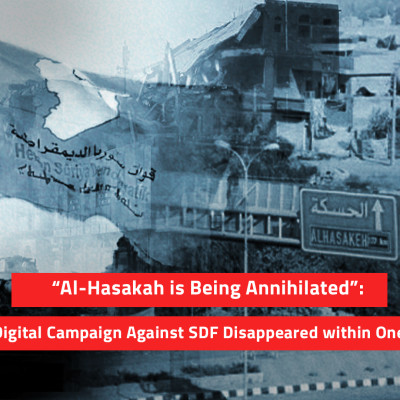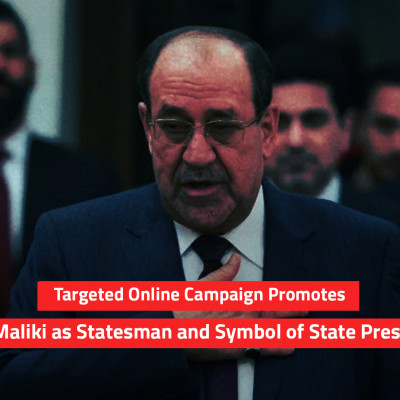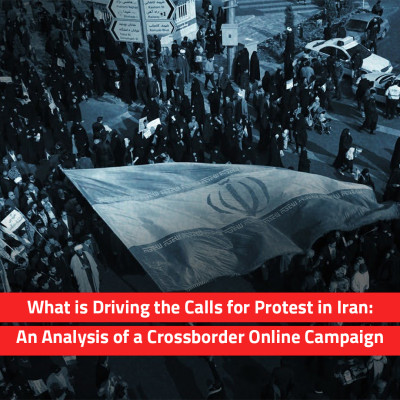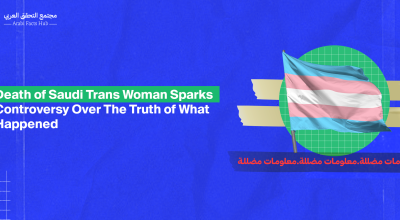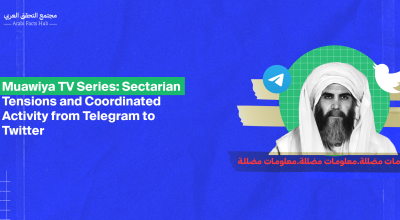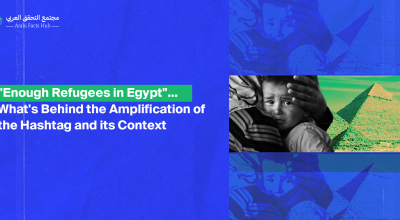On April 17, 2025, the Free Patriotic Movement (FPM) launched an online campaign using the hashtag #محتلين_بتياب_نازحين (Occupiers In Refugee Clothes) to mark the anniversary of the Syrian army’s withdrawal from Lebanon on April 25, 2005.
On April 26, 2025, the FPM held a rally at the Michel El Murr Sports Complex to commemorate the event, claiming that “the Syrian army has returned in the form of Syrian refugees present in Lebanon since 2011.”
The image below shows key participants in this campaign, including FPM leader Gebran Bassil, the party-affiliated OTV channel, and the official FPM account on X. This account initiated the campaign by posting a promotional video on April 17, 2025, which indicates that the hashtag was officially launched through party platforms and accounts affiliated with FPM members.
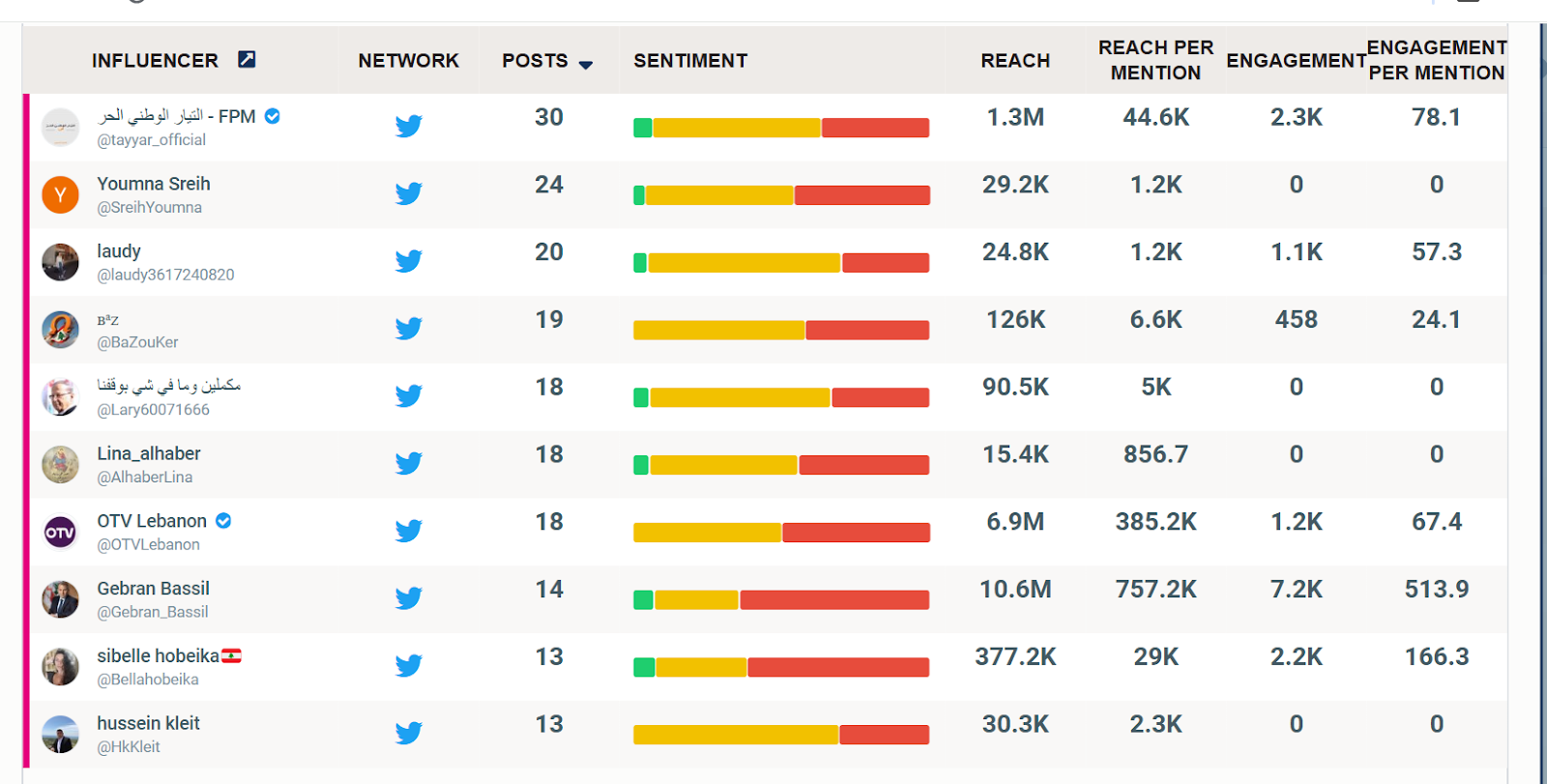
The hashtag "#محتلين_بتياب_نازحين" (Occupiers In Refugee Clothes) was associated with other keywords linked to the FPM, including Gebran Bassil, Michel Aoun, and OTV Lebanon.
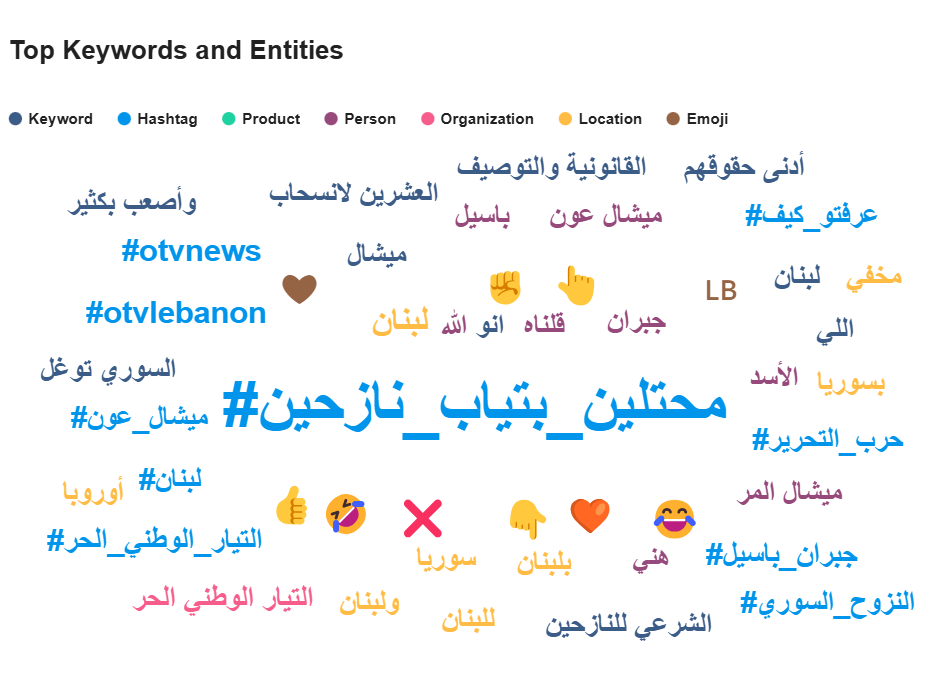
In addition to the party leader Gebran Bassil, MPs from the FPM also participated in the campaign, with some sharing videos in which they spoke about the "threat" posed by the continued presence of Syrian refugees in Lebanon.
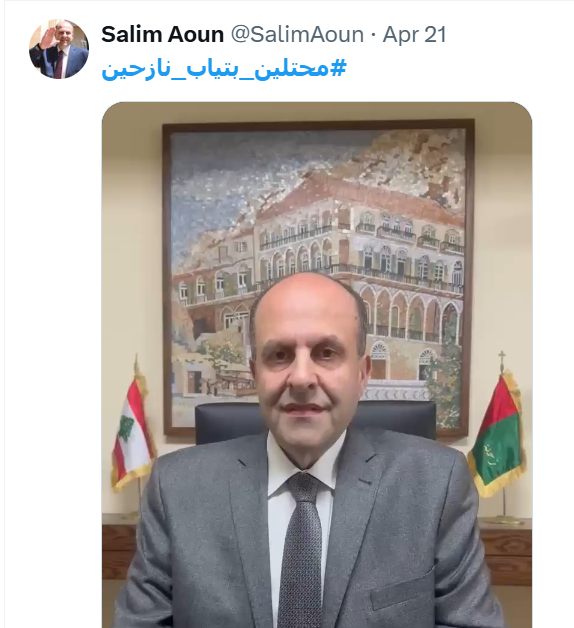

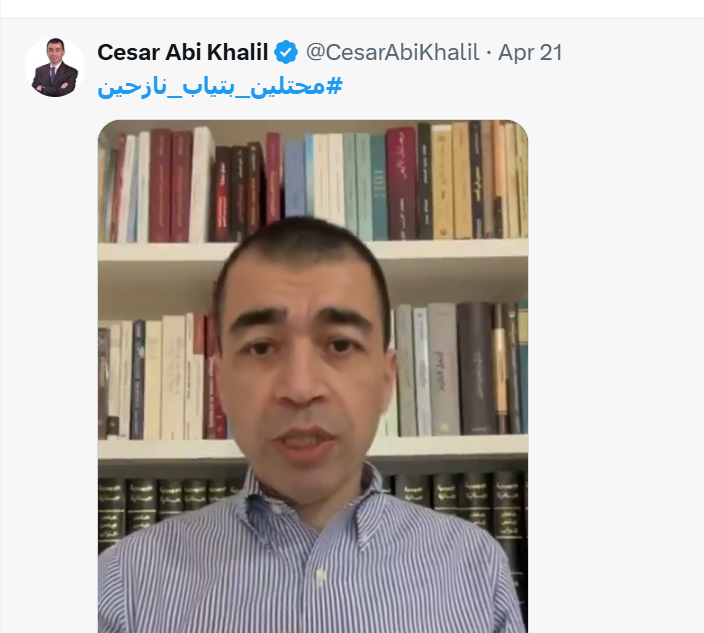
Party members also took part in the campaign, most notably FPM’s vice president, Naji Hayek, who has consistently incited against refugees and other sects in the country.
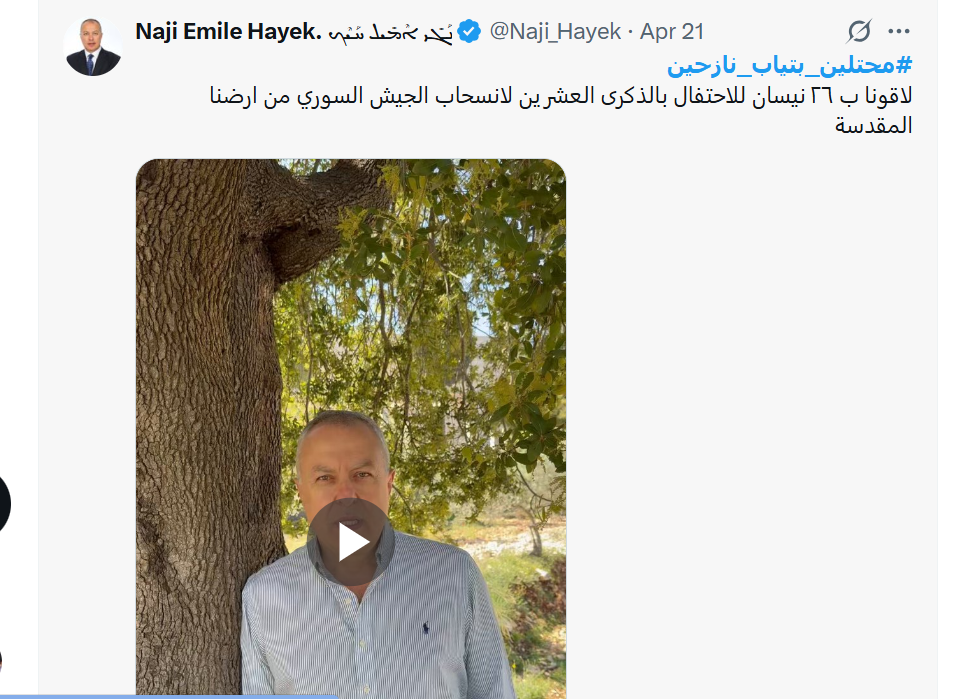
In his speech during the gathering on April 26, 2025, the party’s Vice President for Foreign Relations, Naji Hayek, said: “The occupiers in refugee clothes are no longer guests; they have become a security, economic, and demographic occupation.”
Also participating in the campaign were prominent activists from the party, such as Bassam Al-Turk and Jay Abboud, who previously likened the refugees to “settlers.”
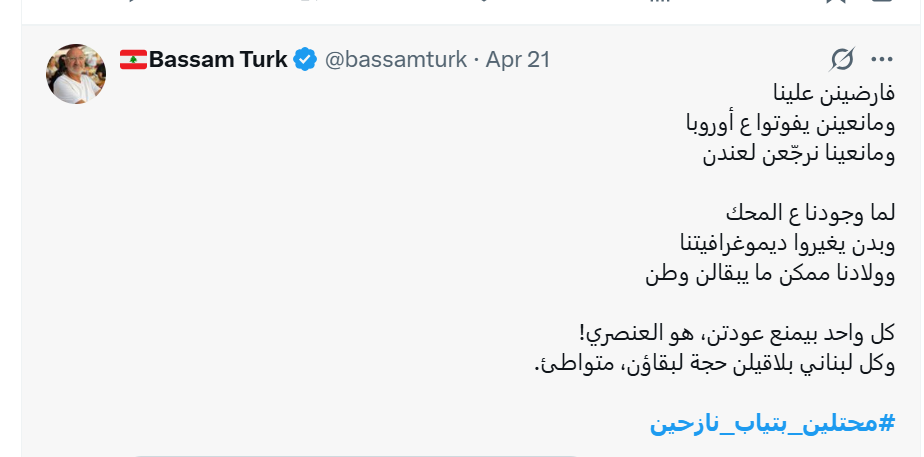

Activist Marie-Lina Hraoui was the first to label the Syrian refugees as “settlers,” describing them as an “existential threat.”
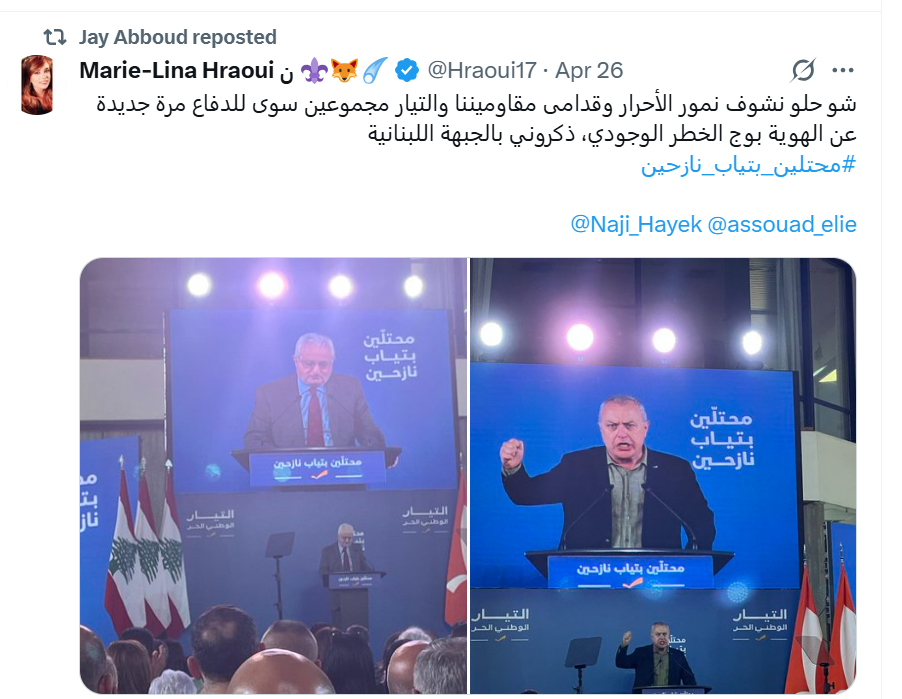
Activist Sibbelle Hobeika also participated in the campaign through several posts, expressing her rejection of the presence of Syrian refugees and describing them as “occupiers.”
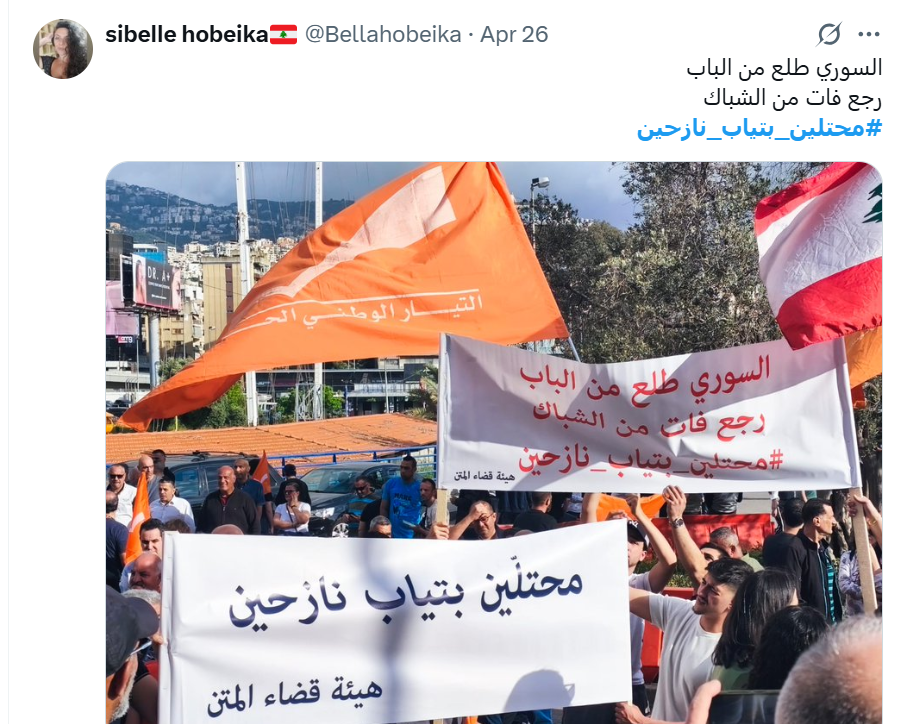
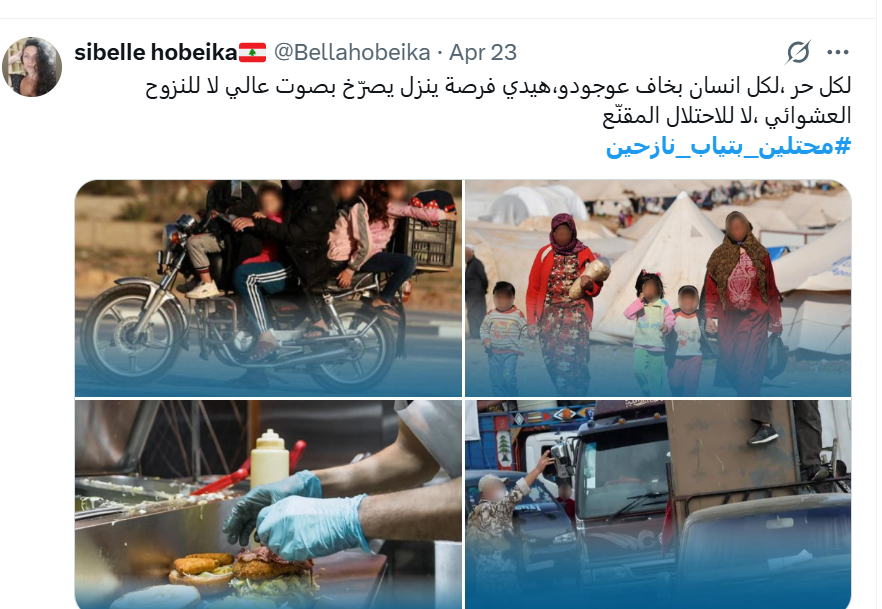
On the other hand, accounts supportive of the Lebanese Forces party criticized the campaign, such as Imad Succar, who wrote in a post on X: "They naturalized 500 occupiers from Assad’s group, refused to limit the refugees to a single safe zone, allied with the Syrians at every critical moment, and tomorrow they will come down to protest against their presence."
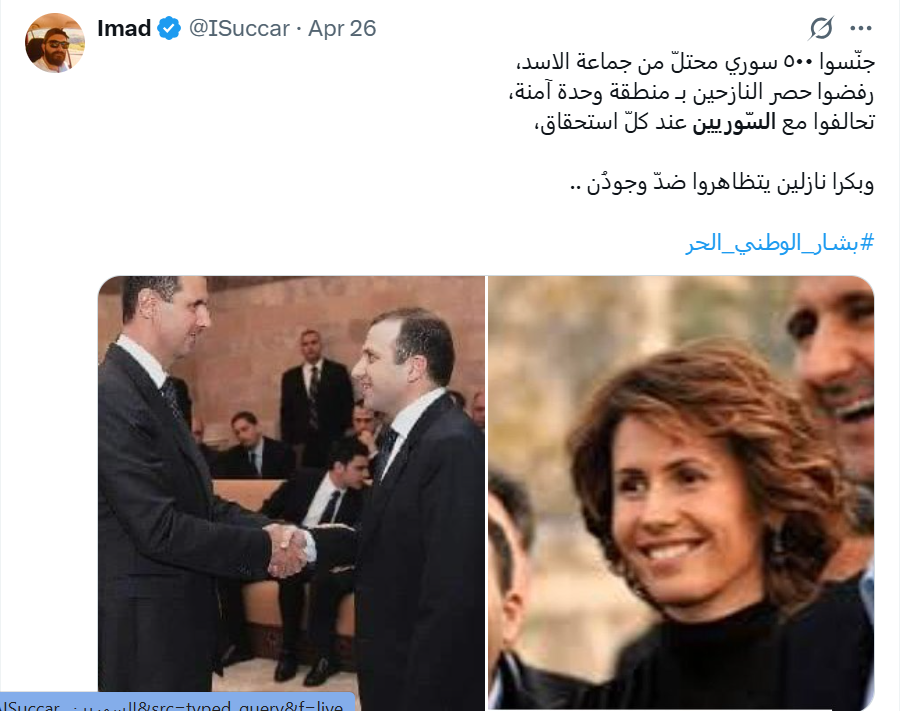
Tense Historical Relations
On April 25, 2005, the Syrian army withdrew from Lebanon after nearly 30 years of presence. The army had originally entered Lebanon following its victory in a military battle against the Lebanese Army, which was then led by Michel Aoun, the current leader of the FPM.
Despite their historical hostility, Aoun later expressed support for the Ba'ath regime’s crackdown on the Syrian revolution, and he, along with Gebran Bassil, opposed hosting Syrian refugees in Lebanon.
Previous Campaigns
This is not the first time the Free Patriotic Movement has led a hate campaign against Syrian refugees in Lebanon. In 2019, the party’s youth sector launched a campaign targeting Syrian workers in the country. Members of the youth wing entered shops and bakeries in the Jdeideh area, confronting Syrian workers on camera and telling them their work was "illegal" and that they should return to their country.
That same year, OTV—FPM’s affiliated channel—aired an offensive cartoon targeting Syrian refugees and other nationalities. The cartoon sparked significant public backlash, ultimately forcing the station to apologize and cancel the segment from its evening news introduction.
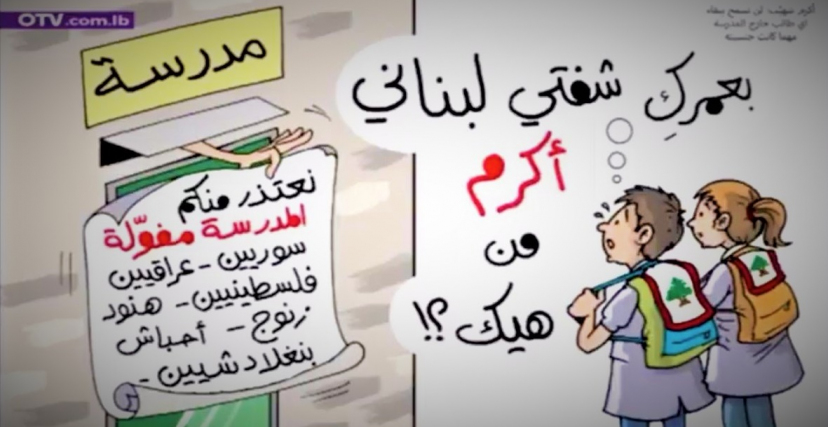
The Free Patriotic Movement has also organized protests in front of the ESCWA building, calling for the return of Syrian refugees to their country and attacking the United Nations High Commissioner for Refugees (UNHCR) in Lebanon. FPM accuses the UNHCR of “seeking to resettle Syrian refugees in Lebanon and preventing their return to Syria.”
In April 2024, the FPM’s Jbeil District Committee staged a protest in front of the Amchit Mixed Secondary Public School and Second Public School of Jbeil—both of which hosted Syrian students in afternoon sessions. According to the National News Agency, the protests led school administrations to suspend classes and send the Syrian students home.
Dissecting the Campaign: Is It Hate Speech?
Posts under the hashtag #محتلين_بتياب_نازحين (Occupiers in Refugee Clothes) were marked by violent rhetoric against refugees, labeling them as “settlers” and “occupiers,” and blaming them for Lebanon’s security, economic, and political crises.
Wadih Al-Asmar, president of the Lebanese Center for Human Rights, told Arabi Facts Hub that:
“These posts, which are part of a broader campaign, are coming from former ministers and current MPs. They’re spreading hate speech by stripping refugees of their legal status and labeling them as merely 'displaced' — a term invented by some Lebanese groups, such as the FPM, to deny refugees the legal protections they are entitled to, and instead accuse them of being occupiers.”
He adds:
“This is not the first time the FPM has launched a campaign against refugees. And they’re not the only party promoting this kind of inflammatory rhetoric. Over the past four years, amid Lebanon’s deepening financial and political crises, these campaigns have intensified — seemingly to deflect blame onto refugees.”
Alongside hate speech, some right-wing Lebanese factions have claimed that nearly 90% of prisoners in Lebanon are Syrian — a claim repeated by then-President Michel Aoun at the United Nations. In reality, the percentage of Syrian prisoners in Lebanon does not exceed 30%, according to the Lebanese Minister of Interior.
Al-Asmar expresses concern that such campaigns could lead to direct or indirect harm to refugees — similar to what occurred in 2021, when supporters of the Lebanese Forces clashed with Syrian refugees in the city of Jounieh.
No Action from Social Media Platforms
The hashtag #محتلين_بتياب_نازحين (Occupiers in Refugee Clothes) spread across multiple social media platforms—most prominently on X—yet none of the posts inciting hatred against Syrian refugees have been removed.
Metehan Durmaz, a policy analyst at SMEX, an organization focused on digital rights and freedoms, told Arabi Facts Hub:
"Since Elon Musk’s takeover of the platform, content moderation mechanisms have significantly weakened, and actions against hate speech have become less effective. There are no longer clear policies to counter coordinated campaigns, which has turned the platform into a kind of digital jungle where inciting posts—including those promoting violence or mocking victims—are left to spread unchecked. We've seen this, for example, with some Israeli user posts."
When asked why no content from this current campaign—or from previous campaigns targeting Syrian refugees globally—has been removed, Durmaz responded:
“We’ve seen many similar cases where such campaigns receive little to no intervention from social media platforms. In Turkey, for instance, a political leader once promised to return Syrian refugees using a ‘catapult,’ a slogan that later became viral content for memes and satire.
As for Meta, it’s often accused of algorithmically promoting divisive and inflammatory content because it generates higher engagement. There are countless examples of this dynamic—just look at the Amnesty International report that documented how similar online campaigns partly contributed to inciting violence that escalated into genocide.”
By: Charbel Khoury

